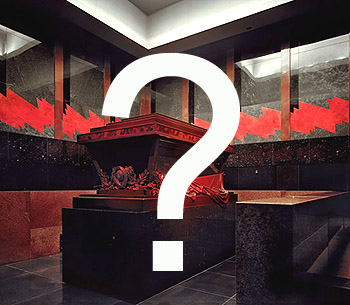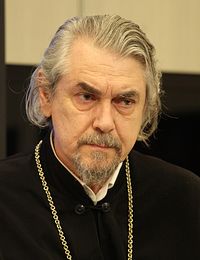In the former Soviet Union, May 1, the International Workers’ Day, was always celebrated with great pomp. Central to this celebration in Moscow was the historical Red Square, where lay the embalmed body of the leader of the proletarian revolution, Lenin—now of odious memory.
In the early years of the revolution, the communists were violently uprooting everything connected with what had always been central to Russian culture—the Orthodox Church. It was a draconian break with the past in order to build the “bright future” of communism. Icons were replaced with pictures of Lenin, his “sayings” (usually ranging from the banal to the absurd) replaced Scripture, and people were told that Lenin “was, is, and ever shall be”. The incorrupt relics of Orthodox saints were destroyed and mocked, while Lenin’s “incorrupt” body (which is nevertheless decomposing despite desperate embalming attempts) was placed in Moscow’s Red Square, with the famous St. Basil’s cathedral in the background, for all good komsomol and communists to venerate.
Time has shown quite clearly what this “bright future” really meant, and Russians are putting great effort into restoring their true values. But the remains of Vladimir Ilyich Lenin still lie in a rather ominous looking mausoleum in Red Square. The long lines of former times have disappeared of their own accord, but the final and decisive step of removing this anachronism has yet to be taken.
But the discussion goes on.
 |
According to the latest poll conducted in April by the Fund for Social Opinion, more than half of all Russian citizens (56%) consider that Lenin’s remains should be taken out of Red Square. Notably, this indicator is 10% higher than it was a few years ago: this data was presented at a conference on April 24 at RIA Novosti on the theme: Vladimir Lenin: When will they bury his body?
The data from recent polls in social networks is even more indicative. 67% of all users of the popular Russian social network VKontakte voted for burying him, as did 85% of the Facebook users who participated in the polls conducted on the RIA Novosti platforms. So how do people push forward an issue that seems to have reached a dead end but which troubles the obvious majority of Russian citizens regardless of political or religious convictions? This was the topic of the press conference.
There is clear program on this account at the Russian Club of Orthodox Benefactors, which has affiliates in over fifty regions of the country. Currently a vote is being taken on their site: www.rkpm.ru, which will continue until May 30, 2012.
As the club’s president Andrei Poklonsky explained, the idea is very simple: first conduct a poll, and then, if the overwhelming majority votes in favor of burying the remains, a letter should be sent to the President of the Russian Federation requesting that the matter taken to the legislature at the appropriate initiative of the State Duma. The club is furthermore ready to finance the procedure of removal and burial of Lenin’s body, promising to professionally and tactfully carry it out. If Lenin’s remains are finally buried, this will place an end to a specific historical stage, says Poklonsky, and Moscow’s Red Square—the heart of Russia—will be freed of this “pagan-necrophiliac mission” as one deputy of the State Duma recently put it.
 |
| Archpriest Vladimir Vigilyansky. |
Archpriest Vladimir Vigilyansky, the head of the press service of the Moscow Patriarchate, had also expressed his position in this discussion. He noted that back in the first years of the present century, Patriarch Alexiy II was asked his opinion concerning the burial of Lenin’s body. The Patriarch agreed that this is necessary, but did not raise the issue again, in order not to “set people against each other”.
Fr. Vladimir said that he proposes that the President elect, after his inauguration, give the communists their “shrine”, that is, Lenin’s body, and let them do what they want with it. If they want they can bury it, or put it on expedition in Ulyanovsk (where Lenin was born), etc., or let people look at it for pay, or without pay, or just give it over to the ground.

|
| Elena Zelinskaya, Vice President of the Russian Media Union, "MediaCoyuz" |
“The state cannot exist with these weeds, these ‘as ifs’”, said Fr. Vladimir, “and the mausoleum on Red Square is another huge ‘as if’, and we are ‘as if’ not idol worshippers. We need to tear down all these ‘as ifs’ that make our life ambiguous.”
We still cannot decide, said the Vice President of “MediaCoyuz” Elena Zelinskaya, what the Red Square means to us—a place for parades, a skating rink, a concert platform, or a habitation of the dead. In her opinion, this confusion has marked certain rupture in our social consciousness, and Russian citizens need to sort it out once and for all. This, in her opinion, should begin with “removing the corpse from the main square in the country.” An appropriate place for burial, she says, would be the Volkovo cemetery in St. Petersburg, where Lenin’s relatives are buried. The burial of the “leader” of the proletariat, which has been put off for 88 years, will help Russian society to finally turn the page of its dark past.
